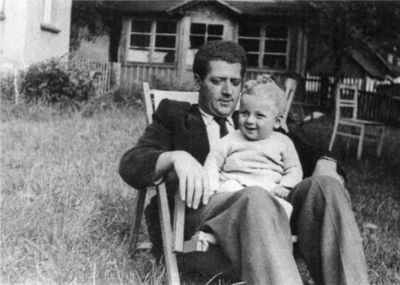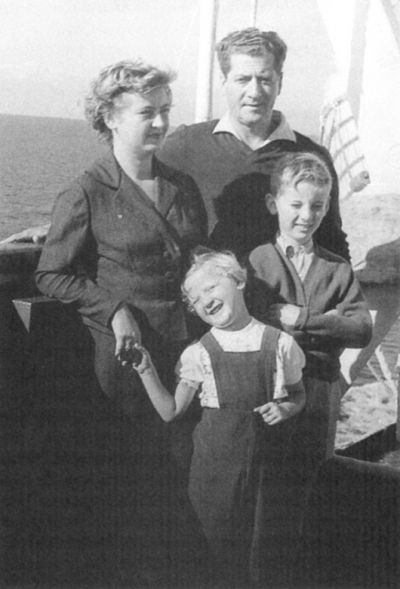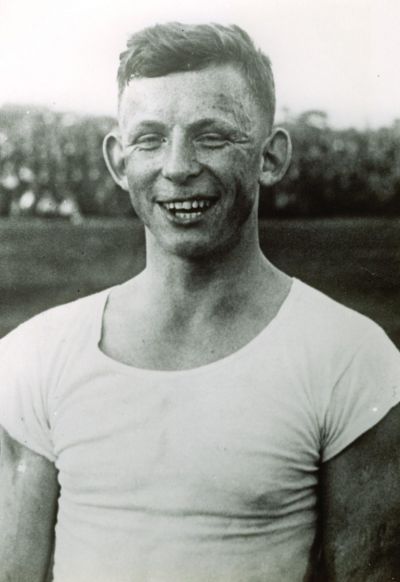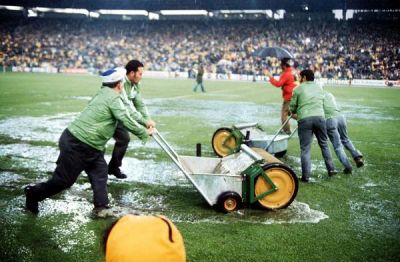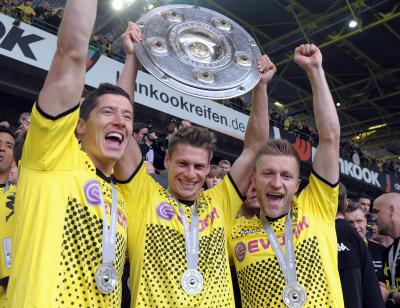Marcel Reif – from Wałbrzych in Poland to iconic football commentator
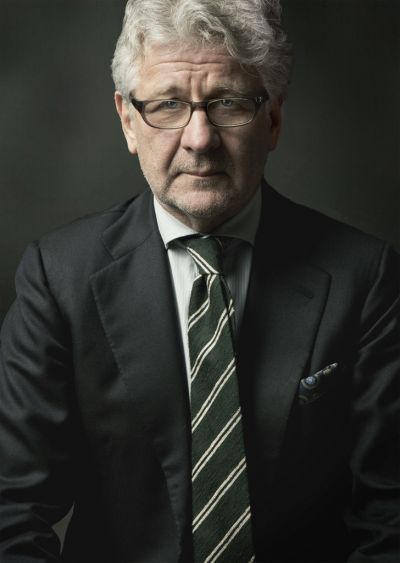
“I have wonderful memories of my time in Poland”, says Marcel Reif in a telephone interview in December 2021. His mother, a Silesian-Polish Catholic, and his father, a Polish Jew, gave him a happy childhood. For the most part, they lived in Warsaw at Wolność Street 2, which was in the Jewish Ghetto during the Second World War. He spent the summer months with his great grandmother and grandmother in rural Lower Silesia, not far from the town of his birth. His parents were not particularly religious, but they still celebrated all the Catholic and Jewish festivals. The “official language” at home was mainly a mixture of Polish with the German-Silesian dialect of his grandmother and the Yiddish of his grandfather.
During the National Socialist tyranny, a German industrialist named Berthold Beitz rescued Reif’s father from a train in Borysław (now Ukraine) that was bound for a concentration camp. Later, Marcel Reif was in touch with Beitz, who was declared Righteous among the Nations by the state of Israel in 1973 for rescuing Jews. Coincidentally, when Beitz died on Sylt in 2013, Reif was only a few hundred metres from his house on the island.
In the mid-1950s, when the political climate in Poland had deteriorated significantly for the Jewish population, the family decided to emigrate to Israel. “For me, that was like an adventure”, says Reif spontaneously, “like a world trip”. The Reifs took the train to Naples and then the boat to Israel before trying their luck in Jaffa. “For me, that was the first linguistic nightmare of my life, because I simply didn’t understand Hebrew in the Israeli junior school or French or Flemish in the boarding school run by Belgian monks to which I was then sent – awful”. Added to this were the strangeness of the environment and the unfamiliarity of the Hebrew language that was omnipresent in his everyday life. After a year and a half, Reif’s father got a job with the American armed forces in Kaiserslautern and the family moved to Germany.
Because of his lack of German, the eight-year-old Marcel was put in the first form with the six-year-olds. That was the second linguistic nightmare in his young life. Traumatised by this situation, he doggedly learnt German and quickly had success. He discovered in himself a gift for languages and a single-mindedness.
After completing his school-leaving exams in Heidelberg, to where the family later moved, he studied American Studies at the University of Mainz and developed a penchant for America and Great Britain. London would also soon become one of his favourite cities starting from when he worked there for two years as a political correspondent for Second German Television (ZDF). This first professional experience in the media brought him immediate success which was endorsed confirmed by experts and viewers alike. However, his failure to belong to one of the dominant political parties of the time made his chances of a future career in this field practically impossible. The fact that newcomers to the new homeland were unwilling to be taken in by political or social institutions, a self-fulfilling trait found again and again in the new migration environment, was also the case for Marcel Reif at this period of his career: He was, is and remains an unaffiliated independent.
These unaffiliated independent newcomers, who have a migration background, are distinguished by an easy relationship with their own national identity on the one hand, and a very clear image of what the (new) homeland means for them on the other. For Marcel Reif, the definition of his national identity has never been an issue. He understands unequivocally that homeland is that “place in which the people close to me are with me”, without limiting oneself to a particular location. So, not “homeland” but “home”. In that sense, he never had a problem with living in several places at once either, which, incidentally, he still does today.
In 1985, the switch to sport from the political desk at Second German Television (ZDF) played a decisive role in Reif’s future. Football, his passion, would now become his profession. As a live presenter and commentator at fixtures played by the national team, the Bundesliga and the Champions League – there had been over 1500 by 2016 – he quickly earned himself a broad fan base and has become iconic over the years. “Marcel Reif” has become a media trade mark. His presenting style, which ranges between linguistic lightness, a clear account of the play situation, honest emotionality without any falseness, and the imparting of background knowledge about the respective events, lets the viewers be virtually engrossed in the game with an omnipresent anticipation of things to some. Of course, the accuracy of his judgement and the choice of verbal means could also leave the fans of the team that was in the commentator’s bad books feeling provoked. For Reif that was understandable because he was always well aware that “the fans are not just [there] with their eyes, they are there above all with their hearts”. He is still respected, valued and well liked today because of this ultimate token of love to the game and to the fans, which is demonstrated again and again in his commentaries.
Marcel Reif has received numerous important awards, not just as a football commentator but also as a media personality. They include the Bavarian Television Award in 1998 for his legendary 76-minute improvisation with Günther Jauch after a game in Madrid was delayed, the German Television Award in 2002 and the Adolf Grimme Prize in 2003 for his reporting from the Football World Cup in 2002.
Jacek Barski, December 2021
Further information and links:
Appearance on “Inas Nacht” on 14/10/2021
Podcast Reif is live:
Books by Marcel Reif:
Marcel Reif, Christoph Biermann, Aus spitzem Winkel. Fußballreporter aus Leidenschaft. Kiepenheuer & Witsch, Köln 2004.
Marcel Reif, Holger Gertz, Nachspielzeit. Ein Leben mit dem Fußball, Kiepenheuer & Witsch, Köln 2017.
Marcel Reif, Patrick Strasser, Auswärtsspiel. Meine schönsten Reisen durch Fußball-Europa, EMF, München 2020.
